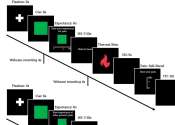Mind over gray matter: Placebo improves both pleasure and pain
(Medical Xpress)—The human brain's exquisite complexity and power make it a unique evolutionary marvel. One of the brain's more interesting abilities is known as the placebo effect, in which no more than the expectation ...









